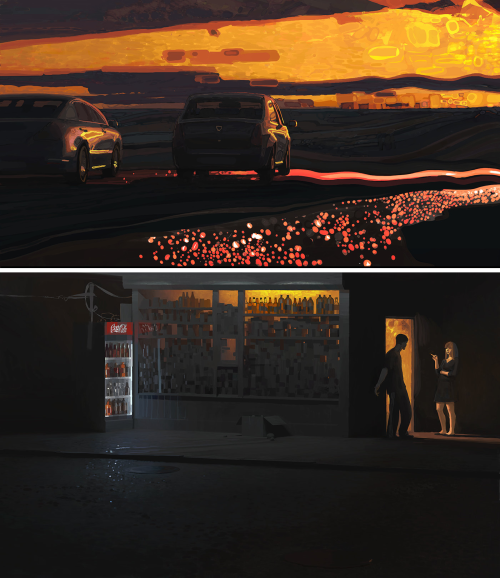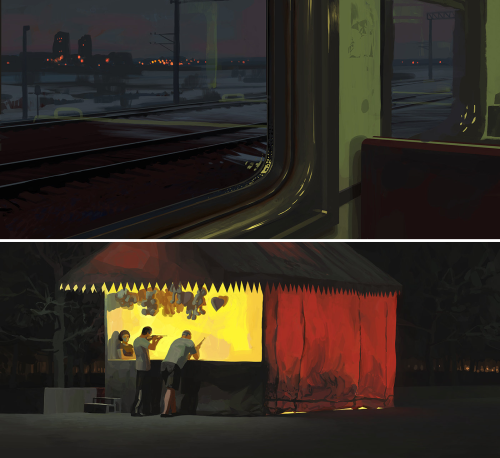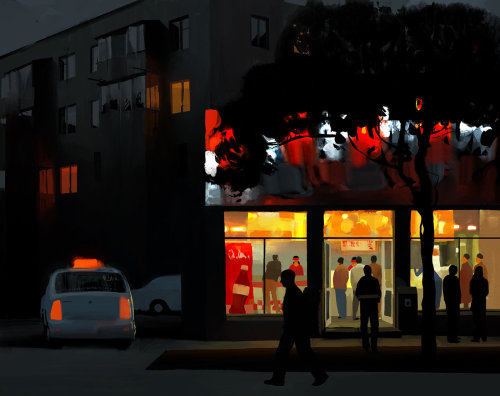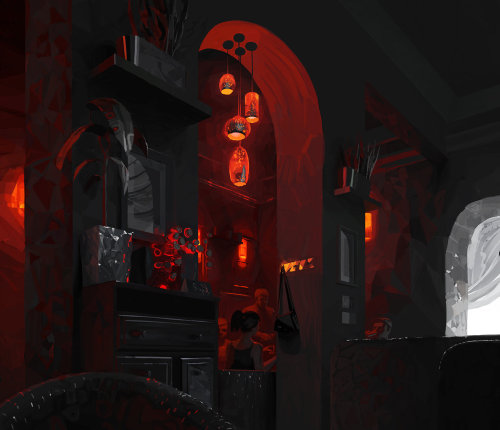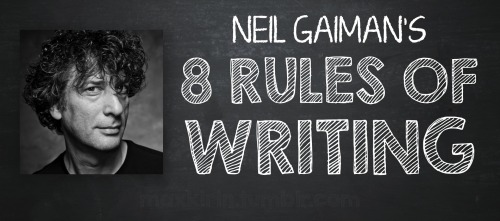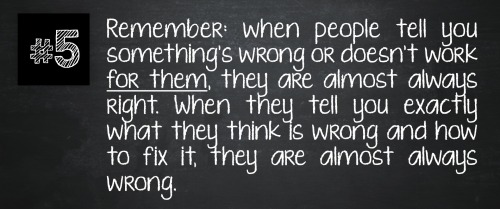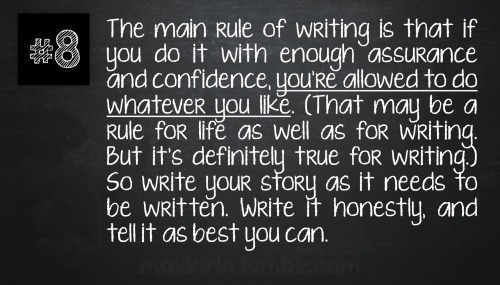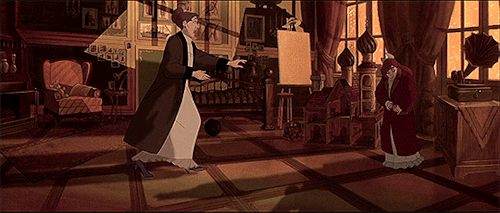Ways To Un-stick A Stuck Story
Ways to un-stick a stuck story
Do an outline, whatever way works best. Get yourself out of the word soup and know where the story is headed.
Conflicts and obstacles. Hurt the protagonist, put things in their way, this keeps the story interesting. An easy journey makes the story boring and boring is hard to write.
Change the POV. Sometimes all it takes to untangle a knotted story is to look at it through different eyes, be it through the sidekick, the antagonist, a minor character, whatever.
Know the characters. You can’t write a story if the characters are strangers to you. Know their likes, dislikes, fears, and most importantly, their motivation. This makes the path clearer.
Fill in holes. Writing doesn’t have to be linear; you can always go back and fill in plotholes, and add content and context.
Have flashbacks, hallucinations, dream sequences or foreshadowing events. These stir the story up, deviations from the expected course add a feeling of urgency and uncertainty to the narrative.
Introduce a new mystery. If there’s something that just doesn’t add up, a big question mark, the story becomes more compelling. Beware: this can also cause you to sink further into the mire.
Take something from your protagonist. A weapon, asset, ally or loved one. Force him to operate without it, it can reinvigorate a stale story.
Twists and betrayal. Maybe someone isn’t who they say they are or the protagonist is betrayed by someone he thought he could trust. This can shake the story up and get it rolling again.
Secrets. If someone has a deep, dark secret that they’re forced to lie about, it’s a good way to stir up some fresh conflict. New lies to cover up the old ones, the secret being revealed, and all the resulting chaos.
Kill someone. Make a character death that is productive to the plot, but not “just because”. If done well, it affects all the characters, stirs up the story and gets it moving.
Ill-advised character actions. Tension is created when a character we love does something we hate. Identify the thing the readers don’t want to happen, then engineer it so it happens worse than they imagined.
Create cliff-hangers. Keep the readers’ attention by putting the characters into new problems and make them wait for you to write your way out of it. This challenge can really bring out your creativity.
Raise the stakes. Make the consequences of failure worse, make the journey harder. Suddenly the protagonist’s goal is more than he expected, or he has to make an important choice.
Make the hero active. You can’t always wait for external influences on the characters, sometimes you have to make the hero take actions himself. Not necessarily to be successful, but active and complicit in the narrative.
Different threat levels. Make the conflicts on a physical level (“I’m about to be killed by a demon”), an emotional level (“But that demon was my true love”) and a philosophical level (“If I’m forced to kill my true love before they kill me, how can love ever succeed in the face of evil?”).
Figure out an ending. If you know where the story is going to end, it helps get the ball rolling towards that end, even if it’s not the same ending that you actually end up writing.
What if? What if the hero kills the antagonist now, gets captured, or goes insane? When you write down different questions like these, the answer to how to continue the story will present itself.
Start fresh or skip ahead. Delete the last five thousand words and try again. It’s terrifying at first, but frees you up for a fresh start to find a proper path. Or you can skip the part that’s putting you on edge – forget about that fidgety crap, you can do it later – and write the next scene. Whatever was in-between will come with time.
More Posts from Agent-ishiguro and Others
Writing Tip Index
So I realize most of my Tumblr followers just follow me on Tumblr, which I’m cool with, but since I’ve been working really hard on updating my website, I still wanted to share it with everyone. If you have visited it recently, you’ve probably noticed quite a few changes. You can check it out here.
One of the new features is that I’ve compiled an almost complete list of my writing tips by topic. I’ll be updating it regularly here.
Below is the list as of my posting this. There are also a couple of articles that aren’t mine (noted) that I refer other writers to.
Beginning
Coming up with a Good First Sentence
Tips on Starting a Story
How to Start Writing When You Have No Idea Where to Start
Brainstorming
The REAL Key to Brainstorming: Restrictions
Flipping Story Stuff
Stacking Your Brainstorming Ideas
Coming up with a Plot (from scratch)
Breaking Writing Rules
Breaking Writing Rules Right: “Show, don’t Tell”
Breaking Writing Rules Right: “Don’t Use ‘Was’”
Breaking Writing Rules Right: “Don’t Use Adverbs, Adjectives”
Breaking Writing Rules Right: “Only Use ‘Said’”
Characters
Complex Characters and the Power of Contradiction
Making Unlikeable People into Likeable Characters
Character Traits that Hike Up Tension
Creating Stunning Side Characters (and Why They Matter)
Relationship as a Character: Crafting Duos, Trios, Groups that Readers can’t Resist
Pairing Behaviors with Odd Demeanors for Originality
“The Emotional Range of a Teaspoon”: Your Characters’ Spectrum of Emotions
Considering the Irrationality of Your Characters
How to Pick the Right Character Names
The “Twins as Clones” Writing Epidemic
What You Need to Know Most About Character Voice
Conflict
Coming up with a Plot (from scratch)
Are Your Conflicts Significant?
Keeping Conflicts Unresolved
The Oft Forgotten Conflict and How to Make it Work: Man Vs. God
Context
Context vs. Subtext (Context Should Not Become Subtext)
Making Strengths into Weaknesses (and Vice Versa) through Context
Description
Picking the RIGHT Details
Three Tweaks that Keep Details Interesting
Breaking Writing Rules Right: “Don’t Use Adverbs, Adjectives”
Dialogue
Writing Realistic and Complex Dialogue
Kicking “Great” Dialogue up to “Killer” Dialogue
Breaking Writing Rules Right: “Only Use ‘Said’”
Generic Dialogue—Staaaahp
(Don’t) Tell Me How You Really Feel
Emotion
Writing Empathetically vs. Sympathetically and Sentimentally
Let Your Reader do the Work
Raw vs. Subdued Emotions: Getting them Right in Your Story
“The Emotional Range of a Teaspoon”: Your Characters’ Spectrum of Emotions
Gaining Incredible Emotional Power by Crossing Opposites
Choosing Relatable Descriptions to Power up Empathy
Selecting the Right Sentence Structure for the Right Emotion
Dealing with Melodrama: What it is, How it Works, and How to Get Rid of it
The Emotion Thesaurus by Angela Ackerman and Becca Puglisi
Feedback
The Real Reason You NEED to Give Positive Feedback!
Feeding us Criticism
Foils
Playing with Foils
Grammar and Punctuation
Dangling Modifiers and How to Correct Them (Purdue OWL)
Punctuation in Dialogue (The Editor’s Blog)
Humor
15+ Tactics for Writing Humor
Guardians of the Galaxy and the Art of Constructing Jokes (Film Cit Hulk Smash)
Micro-Concepts
Writing Micro-concepts
Mystery
The Mechanics of Rendering Mysteries and Undercurrents—How to Withhold Info Right
Keep reading
all the tips I found for drawing a fantasy map are like :) “here’s a strategy to draw the land masses! here’s how to plot islands!” :) and that’s wonderful and I love them all but ??? how? do y'all decide where to put cities/mountains/forests/towns I have my map and my land but I’m throwing darts to decide where the Main Citadel where the Action Takes Place is
so remember that worldbuilding website, notebook.ai, that was goin around and everyone was so excited, but it turned out you had to pay a (frankly outrageous) subscription to access any of the best tools?
well i have exciting news: World Anvil.
here’s what you get for free:

yeah. all of them. double what notebook.ai offers for pay. yeah baby.
i’ve only been using this site for like half an hour, but i am in LOVE. please check it out and consider supporting the creators if you can!

Word Counter - Not only does it count the number of words you’ve written, it tells you which words are used most often and how many times they appear.
Tip Of My Tongue - Have you ever had a word on the tip of your tongue, but you just can’t figure out what it is? This site searches words by letters, length, definition, and more to alleviate that.
Readability Score - This calculates a multitude of text statistics, including character, syllable, word, and sentence count, characters and syllables per word, words per sentence, and average grade level.
Writer’s Block (Desktop Application) - This free application for your computer will block out everything on your computer until you meet a certain word count or spend a certain amount of time writing.
Cliche Finder - It does what the name says.
Write Rhymes - It’ll find rhymes for words as you write.
Verbix - This site conjugates verbs, because English is a weird language.
Graviax - This grammar checker is much more comprehensive than Microsoft Word, again, because English is a weird language.
Sorry for how short this is! I wanted to only include things I genuinely find useful. p>
-
 writingreblogg reblogged this · 1 month ago
writingreblogg reblogged this · 1 month ago -
 masterbutchbaiter liked this · 1 month ago
masterbutchbaiter liked this · 1 month ago -
 kmk1701d reblogged this · 1 month ago
kmk1701d reblogged this · 1 month ago -
 tales-of-whales reblogged this · 1 month ago
tales-of-whales reblogged this · 1 month ago -
 tales-of-whales liked this · 1 month ago
tales-of-whales liked this · 1 month ago -
 newdawnhorizon reblogged this · 1 month ago
newdawnhorizon reblogged this · 1 month ago -
 frammentidiscrittura reblogged this · 2 months ago
frammentidiscrittura reblogged this · 2 months ago -
 kurovera liked this · 2 months ago
kurovera liked this · 2 months ago -
 icewolfiewriting reblogged this · 2 months ago
icewolfiewriting reblogged this · 2 months ago -
 reynsh liked this · 2 months ago
reynsh liked this · 2 months ago -
 flamevbirdv reblogged this · 2 months ago
flamevbirdv reblogged this · 2 months ago -
 newdawnhorizon reblogged this · 2 months ago
newdawnhorizon reblogged this · 2 months ago -
 aurashire liked this · 2 months ago
aurashire liked this · 2 months ago -
 enntzim reblogged this · 2 months ago
enntzim reblogged this · 2 months ago -
 lammaspoika liked this · 2 months ago
lammaspoika liked this · 2 months ago -
 dpd-genrefictionbiblioholic liked this · 2 months ago
dpd-genrefictionbiblioholic liked this · 2 months ago -
 worldwatcher-d reblogged this · 2 months ago
worldwatcher-d reblogged this · 2 months ago -
 ladyofmisfortune liked this · 3 months ago
ladyofmisfortune liked this · 3 months ago -
 starlantern reblogged this · 3 months ago
starlantern reblogged this · 3 months ago -
 eiene liked this · 3 months ago
eiene liked this · 3 months ago -
 linde121 liked this · 3 months ago
linde121 liked this · 3 months ago -
 mongooseandmeerkat liked this · 3 months ago
mongooseandmeerkat liked this · 3 months ago -
 selfkaiharness liked this · 3 months ago
selfkaiharness liked this · 3 months ago -
 nonbitchnarie liked this · 4 months ago
nonbitchnarie liked this · 4 months ago -
 vintagebishx liked this · 4 months ago
vintagebishx liked this · 4 months ago -
 fizzwizzpop liked this · 4 months ago
fizzwizzpop liked this · 4 months ago -
 danzinora-switch liked this · 4 months ago
danzinora-switch liked this · 4 months ago -
 banana-vatore liked this · 4 months ago
banana-vatore liked this · 4 months ago -
 brushes-of-sage reblogged this · 4 months ago
brushes-of-sage reblogged this · 4 months ago -
 brushes-of-sage liked this · 4 months ago
brushes-of-sage liked this · 4 months ago -
 dorklord-maouvioletta liked this · 4 months ago
dorklord-maouvioletta liked this · 4 months ago -
 whitemistwalker liked this · 4 months ago
whitemistwalker liked this · 4 months ago -
 gia-d liked this · 4 months ago
gia-d liked this · 4 months ago -
 benthicghost reblogged this · 4 months ago
benthicghost reblogged this · 4 months ago -
 charlie-larsenhoff liked this · 4 months ago
charlie-larsenhoff liked this · 4 months ago -
 misseligon liked this · 4 months ago
misseligon liked this · 4 months ago -
 slowpokecurry liked this · 4 months ago
slowpokecurry liked this · 4 months ago -
 mister-e-muss reblogged this · 4 months ago
mister-e-muss reblogged this · 4 months ago -
 mister-e-muss liked this · 4 months ago
mister-e-muss liked this · 4 months ago -
 mikumixtwix reblogged this · 4 months ago
mikumixtwix reblogged this · 4 months ago -
 fithesworddweller reblogged this · 4 months ago
fithesworddweller reblogged this · 4 months ago -
 fithesworddweller liked this · 4 months ago
fithesworddweller liked this · 4 months ago -
 worldwatcher-d liked this · 4 months ago
worldwatcher-d liked this · 4 months ago -
 libr-0-cubicularist liked this · 4 months ago
libr-0-cubicularist liked this · 4 months ago -
 natsor liked this · 4 months ago
natsor liked this · 4 months ago -
 needfantasticstories reblogged this · 4 months ago
needfantasticstories reblogged this · 4 months ago -
 needfantasticstories liked this · 4 months ago
needfantasticstories liked this · 4 months ago
things that might inspire me or help with with my writing skills
55 posts



